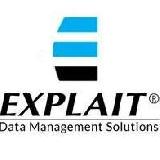What our clients say
-

"Knowledgeable and friendly Their tech support is always friendly and knowledgeable. I have never had any issue with downtime."
Boe VPN
Source:
-

"Fantastic customer service always! New customer with this company and I can't believe how well you are treated. Hard to find a great company like this one which provides such a great service and products."
Mel
Source:
-

"Outstanding Service. I'm using ClouDNS since 2015 for personal domains. In 2018 moved the domains of the company were i work and we use your services since then. Would never though to go back!!!..."
Stanislav Filavtev
-

"ClouDNS is amazing I've been using for a while now and it just works great. I want to say thank you for your fantastic solution for DNS services."
Helinton Dias
@ CloudExperts Consultoria
-

"Thank you for the opportunity to pay for services in Bitcoins. It is very important for your customers from Ukraine at a time when the banking system of Ukraine is now destroyed."
Mikhail Chutowski
-

"As a web agency we offer our clients shared hosting and we want to guarantee them that even if our server experiences any issues, their detached services would be kept running. That is why I turned to ClouDNS...
Grigor Yosifov
CEO @ Forci Web Consulting Ltd
-

"DNS Ninjas. Real People. Real Help. If you're looking for a DNS provider that actually talks to you like a human and not a ticket-bot, ClouDNS is the real deal."
Bandit
Source:
-

"I am so very happy with your company. You are truly the BEST DNS provider on the Internet. Your customer support, pricing, and features are top notch."
Christopher Nofal
Manager @ DreamLab LLC
-

"Amazing support, great services, and best prices."
Dion Vogliqi
Source:
-

"Even during the trail period and free service their customer service is top tier. I've used other premium services but very few of them can match the quality with ClouDNS. "
Shouvik Pal
Source:
-

"Got frustrated with the lack of knowledgeable support at GoDaddy, searched for alternate DNS providers and found ClouDNS. Could. Not. Be. Happier..."
Phillip McMahon
-

"I haven't had any issue in 10 years and the support service is amazingly fast!"
JORGE B
Source:
-

"I've been using ClouDNS for the last ten years and I've never had a single issue. I only log in to tweak DNS settings or renew my domain, and it’s always super easy."
Todor Tsankov
Source:
-

"I have been using ClouDNS since 2014, and I have to say they are a truly amazing. The service they have provided to me and my clients has been second to none. They offer really good value services especially the DDoS subscriptions...
Daniel Ives
CEO @ Ives Network t/a Daniel Ives
-

"I have been using ClouDNS for over a year now, and I couldn't be more satisfied with their services. From the start, their platform has been user-friendly and intuitive, making the process of registering and managing domains straightforward and hassle-free."
Răzvan Birișan
Source:
-

"The best DNS hosting on the GeoDNS Start tariff significantly accelerated and increased the availability of the resource"
Molepool.
Source:
-

"ClouDNS provides the best in class DNS services. Prior to ClouDNS we were hosting and managing our DNS servers which was not core to our business so when we compared alternatives ClouDNS was the right fit..."
James Aker
President at Explait @ EXPLAIT, LLC
-

"Working with the team at ClouDNS has been very supportive. My experience has been excellent. The team is attentive, knowledgeable and skilled when it comes to Cloud DNS, and I can recommend their professionalism."
J. May
Marketing Chief @ Amaze Communication
-

"Your customer service is at the top of my list, keep up the good work!"
Sami Sälö
Chairman of the Board @ Salskea Oy
-

"Thank you guys for all the good work!
I've been using the free version of your DNS service for about 4 years and there has been zero downtime...Iskren Slavov
Founder/Full Stack Developer @ Wish Development Ltd
-

"I wrote to their live chat support about a phishing website that was active, they took it down in 5 minutes! They care about security and their network reputation."
Brad B.
Source:
4.7 out of 5 stars on Trustpilot based on over 130 reviews
"Prompt efficient service every time! Very responsive and reliable company! Thank you!!!"
Salomé Barao
Source: